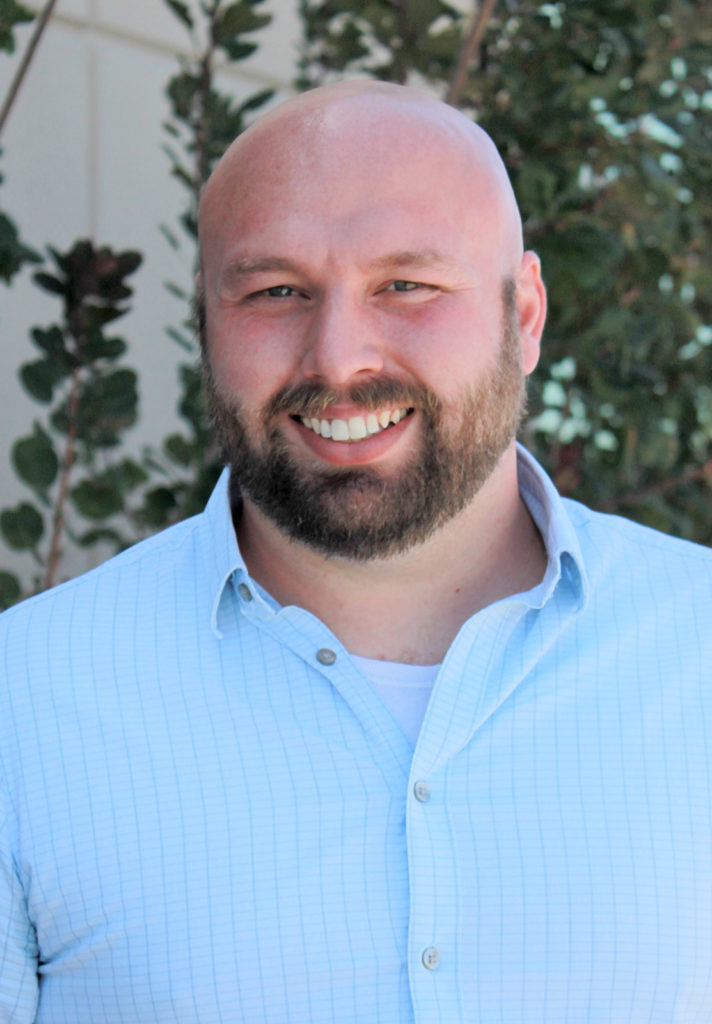American Heart Association grant to bolster Texas student health
Texas A&M AgriLife’s Szeszulski to study, improve school health programming
A $230,000 early career award from the American Heart Association, AHA, will support the Texas A&M AgriLife Institute for Advancing Health Through Agriculture’s, IHA, efforts to improve student health programs over the next three years.

The grant is awarded to Jacob Szeszulski, Ph.D., Texas A&M AgriLife Research assistant professor with IHA, in Dallas.
The grant, titled Optimizing the Impact of the Healthy School Recognized Campus Program on Youth’s Cardiovascular Disease, CVD, Risk Factors, will focus on the challenges schools face when using existing initiatives designed to help improve students’ health via physical activity and healthy eating.
“Dr. Szeszulski’s AHA early career award is exciting and well-deserved,” said Rebecca Seguin-Fowler, Ph.D., registered dietitian and associate director for the IHA and lead for the Healthy Living research program at Dallas. “He is passionate about using systematic processes to examine existing school-based policies and programs that have the potential to greatly impact child nutrition, physical activity and wellness.”
She said Szeszulski will work to understand the context and stakeholders involved in school health wellness programs to help guide their improved effectiveness. She called Szeszulski’s work “a critical area of need in research and practice.”
Strengthening student health programming
Healthy School Recognized Campus, HSRC, is a Texas A&M AgriLife Extension Service and Texas 4-H Youth Development multi-program initiative. It supports the school use of evidence-based physical activity and nutrition programs, including Walk Across Texas and Learn, Grow, Eat and Go! HSRC reaches a diversity of Texas youth by rewarding schools for implementing these programs. In 2021, 15 schools and over 4,500 students participated in HSRC programs.
Szeszulski’s AHA grant will aim to improve the delivery of programs in HSRCs with strategies like school-to-school mentoring programs and coalition-building tools. He will study how the proposed strategies relate to changes in HSRC implementation and students’ health metrics — running capacity, fruit and vegetable consumption, weight measurements and heart disease risks.
“Many researchers spend time developing new, evidence-based physical activity and nutrition programs for youth, but the challenges of implementing these complex programs cause misuse or underuse by schools,” Szeszulski said. “This study aims to help schools improve the implementation process for better success. Improved implementation of existing AgriLife Extension student programs can hopefully increase their scalability across Texas’ 254 counties.”
“Because AgriLife Extension and Texas 4-H make up the community education and outreach arm of Texas A&M AgriLife, we are excited to partner on this project to help us maximize program effectiveness,” said Paula Butler, regional program leader for AgriLife Extension’s East Region, Dallas.
Inspired by early education
Szeszulski credits his early education as an inspiration for his career trajectory. He recalled attending a small, rural school as a child, which provided limited access to physical activity and nutritious foods. These dynamics, he recounted, felt beyond his control as a child as adults made decisions about allocating school resources.
At the same time, Szeszulski noted, research has shown an interconnectedness between academics and health, and students perform better when engaging in physical activity and healthy eating.
“These dynamics have been a driving factor early in my career, and I’m excited that this award from AHA will help to advance the state of programming for healthier students and schools,” Szeszulski said.
Szeszulski earned a bachelor’s degree in health and fitness in preventive and rehabilitative programs from Central Michigan University in 2012. From 2013 to 2016, he served as the program director at a youth physical activity and healthy eating summer camp, while also completing his master’s degree.
In 2019, he earned his doctorate at Arizona State University in exercise and nutritional science, and he contributed to the design and evaluation of two studies that promoted youth physical activity and nutrition. He completed his post-doctoral position at University of Texas Health Science Center in Houston, focusing on improving the implementation of nutrition and physical activity programs for youth in 2021.
Proactively tackling health issues
Szeszulski said his AHA award and research represent a step toward embracing preventive health in the U.S. — addressing costly chronic health issues before they occur.
The Healthy Living Program is one of three major focus areas within the IHA, the world’s first academic institute to bring together precision nutrition, responsive agriculture, and social and behavioral research to reduce diet-related chronic disease and lower health care costs in a way that supports producers and the environment.
A Milken Institute study shows chronic health conditions in the U.S. cost upward of $1.1 trillion.
“To switch from a treatment-focused country to a prevention-focused country will require substantial time and research investment to study the best ways to implement healthy living programs,” Szeszulski said. “It is important to have young researchers who are well-trained and passionate about healthy living so that they continue to do this work throughout their careers.”
Over the grant’s first year, Szeszulski and researchers from the IHA will partner with AgriLife Extension agents to collect data on how HSRC programs are currently being implemented.
Data from surveys and interviews with schoolteachers, principals, support staff and other community members involved in current programs will be used to develop the strategies tested in the 2023-2024 and 2024-2025 school years.
“Dr. Szeszulski’s partnership with AgriLife Extension and Texas schools will advance school-based program and policy implementation through improved adoption and efficiencies, ultimately leading to better health for children in Texas and beyond,” Seguin-Fowler said.


